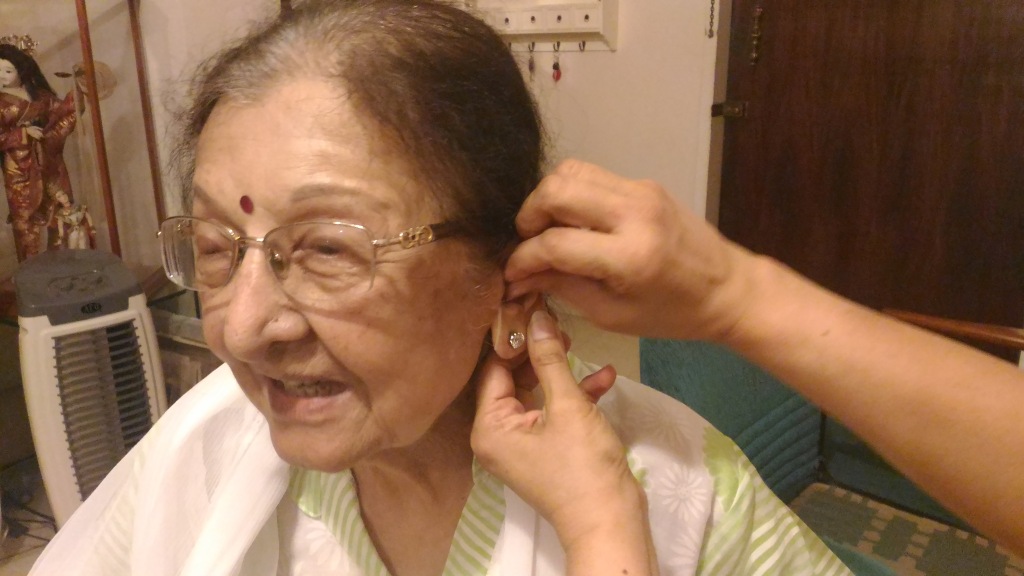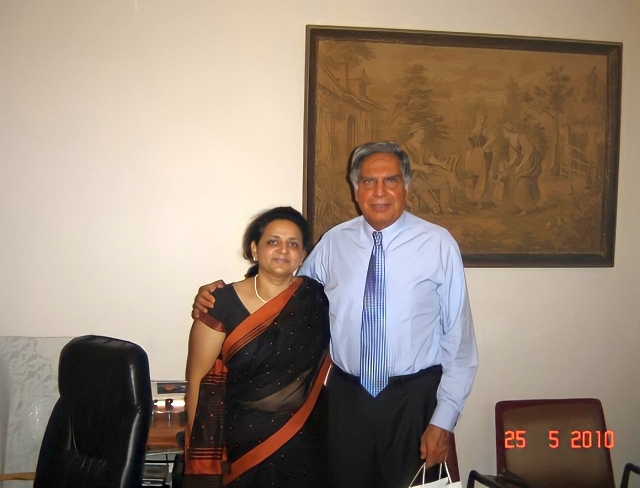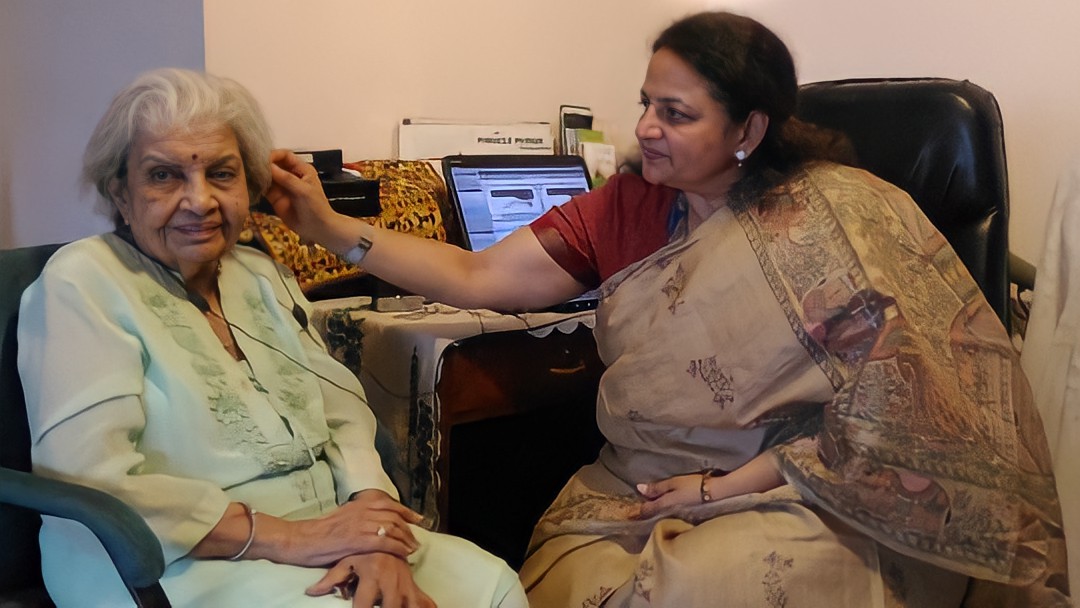
FAQ : Frequently Asked Questions
Hearing Loss And Its Types
-
What is hearing Impairment ?
-
What do you understand by severity and shape of hearing loss ?
-
What are the different degrees of hearing loss?
-
What is the incidence of ‘hearing loss’?
-
What are different Types of Hearing Loss and its respective Causes and Treatment?
Signs And Symptons Of Hearing Loss
-
How do I know If I have hearing loss?
-
What are the signs of hearing loss in children?
Evaluation Of Hearing Loss
-
What is the right time to go in for hearing test?
-
How to evaluate hearing loss?
Whom To Contact For Hearing Loss
-
Who is a hearing health consultant or an audiologist? What is the role of an audiologist?
All About Audiologist
-
What is the difference between an audiologist and a hearing instrument fitter (HIF)?
-
What types of tests and treatments do audiologists perform?
Hearing Aid And Its Types
-
What is a hearing aid?
-
How is the hearing aid useful?
-
What are the different types of hearing aids?
-
What is the right time to go for hearing aid usage?
Selection Of Hearing Aids
-
How to select hearing aids ? What is the process of selecting a hearing aid from wide range of instruments from various companies?
-
What type of hearing aid should one buy?
-
What style of hearing aid do i need?
-
Will a hearing aid restore normal hearing?
-
How can I be sure which is the right hearing aid for me?
Consequences Of Delay And Disuse
-
Should One Wear one hearing aid or two aids? One on each ear?
-
10 Reasons why you should wear two hearing instruments?
-
Psychological consequences of hearing loss?
Tinnitus
-
What is Tinnitus?
-
What causes Tinnitus?
-
How is Tinnitus treated?
-
When is noise harmful?
-
How to protect your hearing?
Hearing Loss And Its Types :
Process of Hearing
The auditory system transforms mechanical energy—sound waves—into nerve impulses. Sounds enter the system via the inch-long ear canal, which terminates at the tympanic membrane (eardrum) whose vibrations represent an exquisitely complex response to pressure variations. A series of tiny bones (ossicles) in the middle ear amplify and transmit these vibrations to the cochlea of the inner ear, a fluid-filled tube rolled up like a snail shell.
Hair cells within the cochlea are the receptors of the auditory system. Movement of the membrane lining the cochlea stretches the tips of hair cells to allow an influx of K+ and Ca+2 ions—charged particles that build up to generate electrical signals in acoustic nerve fibers. The frequencies to which each hair cell responds depends on its position in the cochlea.
What is ‘Hearing Impairment’?
Hearing impairment is the inability of an individual to hear sounds adequately. This may be due to damage or disease to any part of the hearing system or improper development in fetal state.
What do you understand by degree and shape of hearing loss?
Degrees of hearing loss
How severe is your hearing loss? That depends on which levels of sound you can hear. Your hearing professional will chart these levels on an audiogram in order to determine your degree of hearing loss. Hearing loss is generally classified in seven degrees: normal, slight, mild, moderate, moderately severe, severe, and profound.
Shapes of hearing loss
Your hearing may be limited to one ear or affect both. There are four configurations of hearing loss that you could be experiencing.
-
Bilateral vs. unilateral – Bilateral involves hearing loss in both ears, while unilateral hearing loss is only in one ear
-
Symmetrical vs. asymmetrical – Symmetrical means that your level and type of hearing loss is the same in both ears. Asymmetrical means that your ears have different types or levels of hearing loss
-
Progressive vs. sudden hearing loss – Progressive hearing loss gets worse over time, while sudden hearing loss happens spontaneously – like after being exposed to a very loud noise. See a medical professional immediately if you think you may have sudden hearing loss
-
Fluctuating vs. stable hearing loss – Fluctuating hearing loss can get better or worse over time, while stable hearing loss will stay the same.
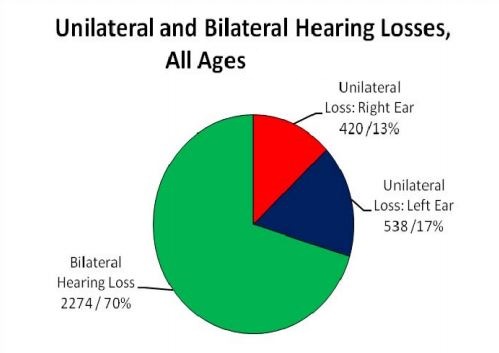
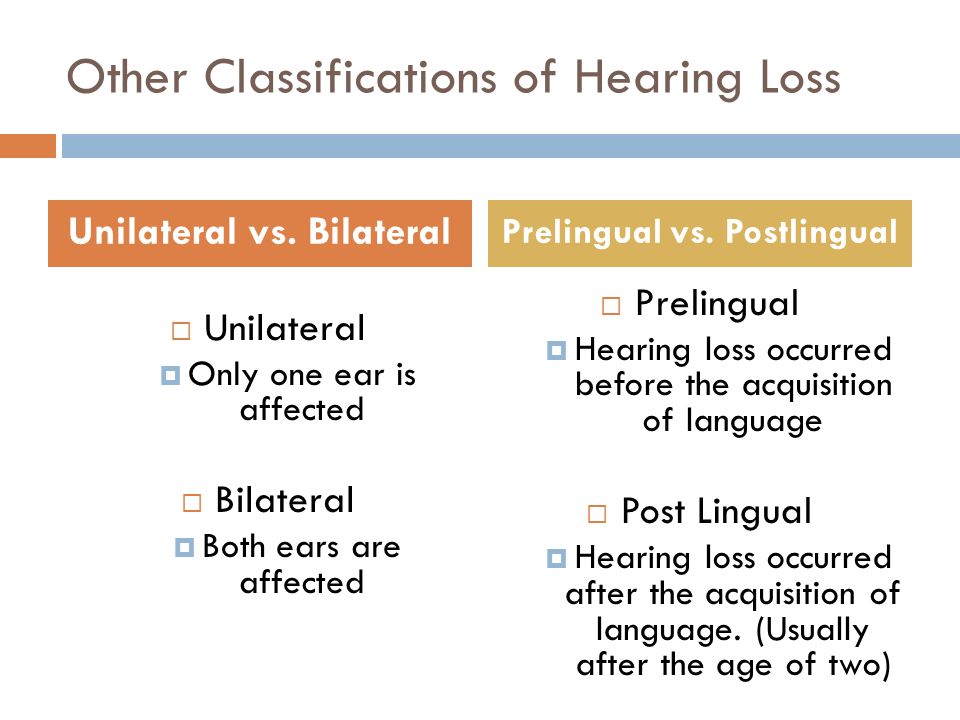
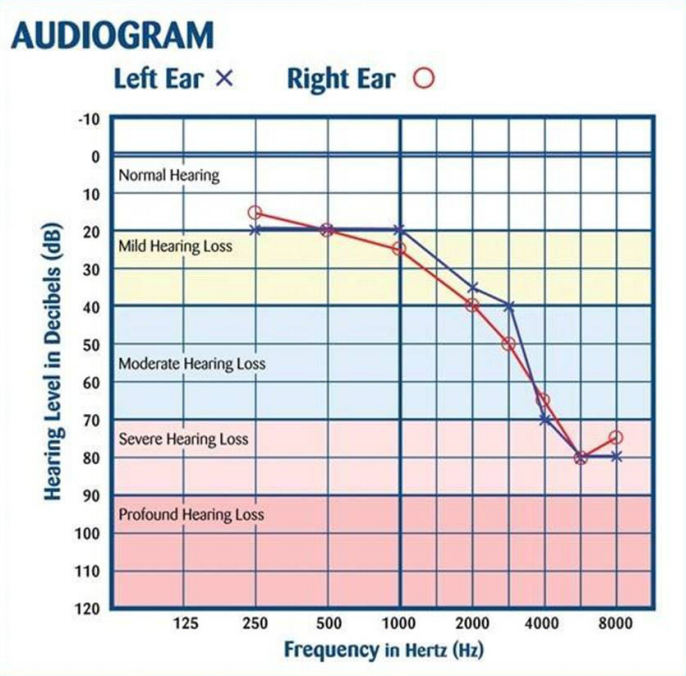
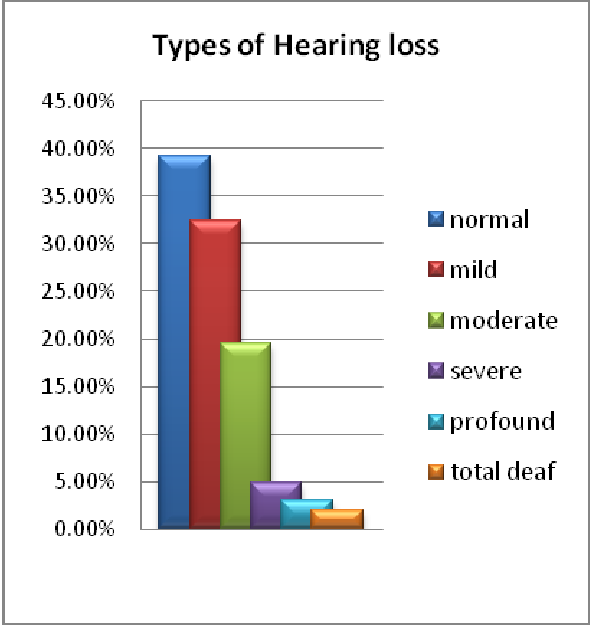
What Are The Different Degrees Of Hearing Loss?
The results of your hearing test are plotted on a chart called an audiogram. Loudness is plotted from top to bottom. The top of the graph is very quiet and the bottom of the graph is very loud. Frequency, or pitch, from low to high, is plotted from left to right. Hearing level (HL) is measured in decibels (dB) and is described in general categories.
The general hearing loss categories used by most hearing professionals are as follows:
• Normal hearing (0-25 dB HL)
• Mild hearing loss (26-40 dB HL)
• Moderate hearing loss (41-70dB HL)
• Severe hearing loss (71-90 dB HL)
• Profound hearing loss (greater than 91 dB HL)
What is the Incidence of ‘Hearing Loss’?
It is estimated that approximately amongst adults over the age of 58 years, as many as 50% may be affected by hearing impairment. The severity of the loss may differ from person to person. Additionally 0.1 % of the new born babies are born with irreversible hearing loss.
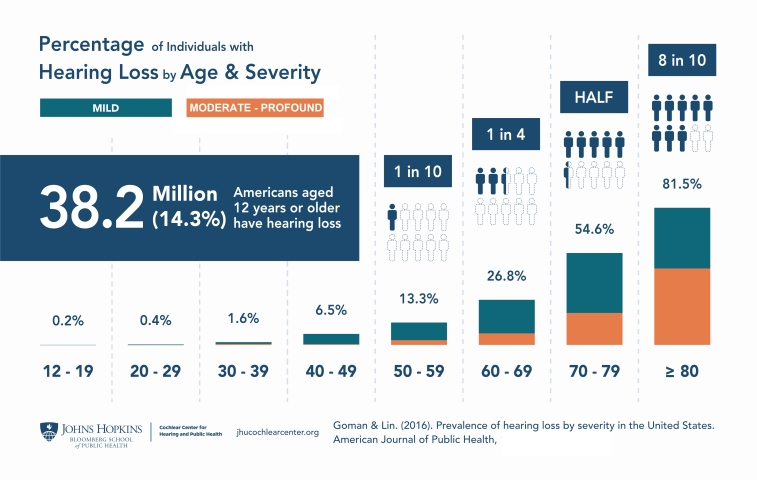
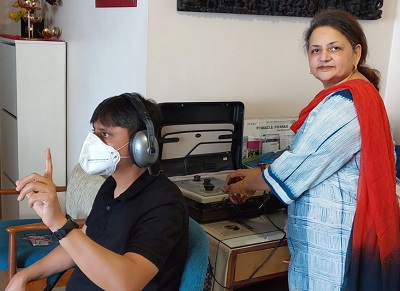
Hearing Test
Let us take our hearing health survey and start your journey to better hearing
We believe in setting digital hearing aid programming based on the Hearing Test done in natural environment
Take Survey
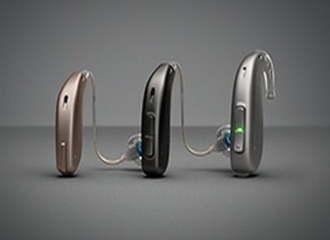
Guide To Hearing Aid
Selection of Hearing Aid is complex so let us make decision with professional counselling
Choose

Contact Us
Find out what Audiologist Smt. Shaila Vora can do to treat your hearing loss
Get in Touch
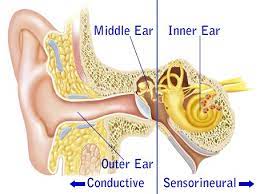
Causes Of Sensory Neural Hearing Loss:
The main cause of Sensory Neural loss is aging process (67.3%). Usually referred to as Age induced hearing loss or ‘Presbycusis’. The impairment originates due to damage to the sensory cells of the ‘cochlea’ of the inner ear.
What are different Types of Hearing Loss and its respective Causes?
There are 3 types of hearing loss
1) Conductive hearing loss
2) Sensory neural hearing loss and
3) Mixed hearing loss.

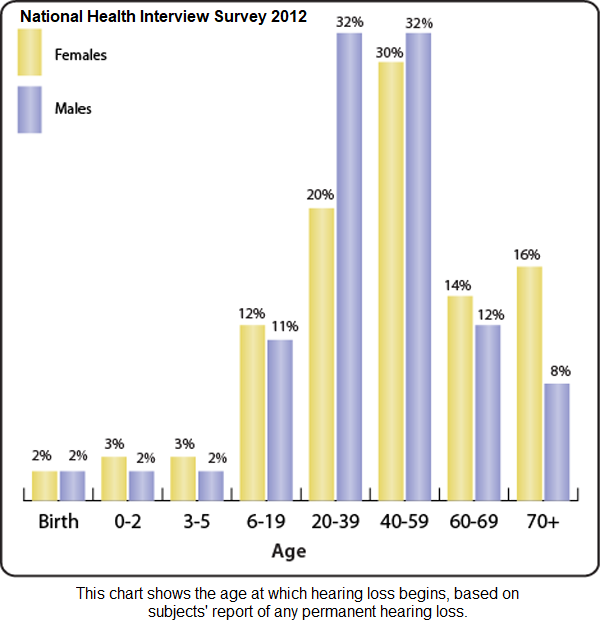
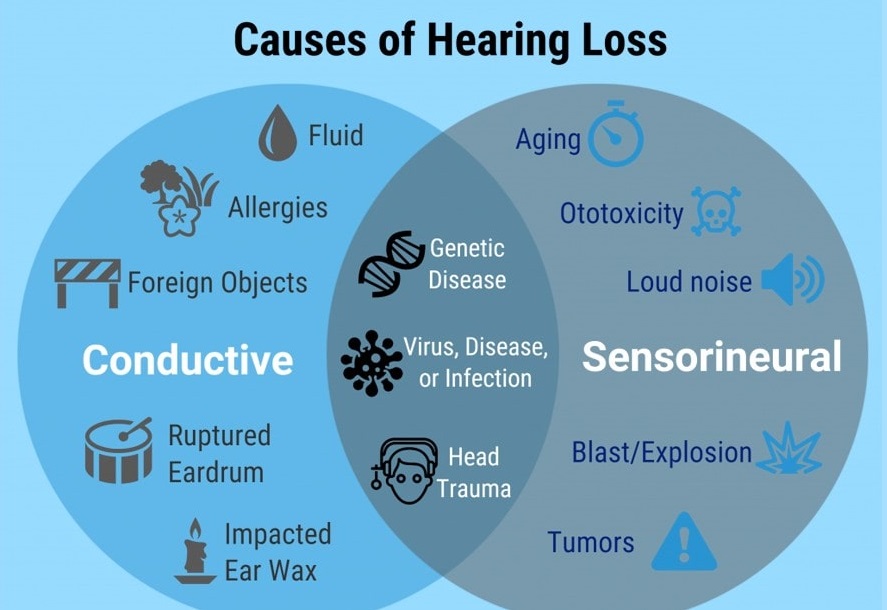
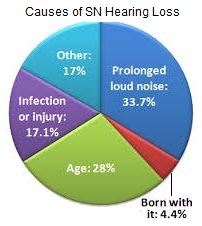
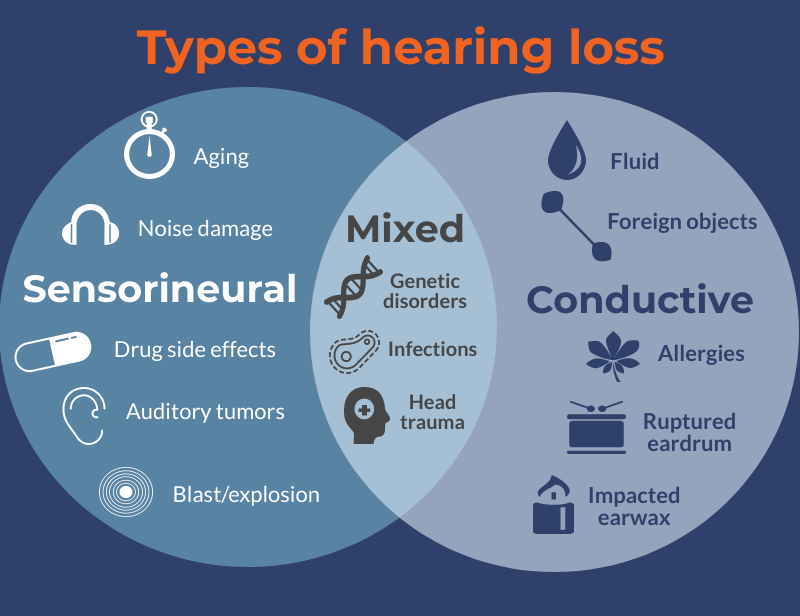
What is the treatment for different types of hearing loss?
Treatment for Conductive Loss
Treatment for Sensorineural Loss
Signs And Symptoms Of Hearing Loss :
Signs of Hearing Loss in Adults
How Do I Know If I Have Hearing Loss?
If you’re concerned you or a loved one may be experiencing hearing loss, you are not alone. Because hearing loss can come on gradually, it’s often the people around you who notice your hearing problems before you do. Typically, it takes people an average of seven years to seek treatment. If you exhibit the following symptoms, consider visiting an audiologist:
-
You hear mumbling when people are speaking to you.
-
You have to ask people to repeat what they said.
-
You laugh at jokes even though you may not have heard the details.
-
You frequently complain that people mumble.
-
You need to ask others about the details of a meeting you just attended.
-
You play the TV or radio louder than your friends, spouse or relatives.
-
You cannot hear the doorbell or the telephone.
-
You find that looking at people when they speak to you makes it easier to understand.
-
You miss environmental sounds, such as birds chirping or leaves blowing.
-
You find yourself avoiding certain restaurants because they are too noisy.
-
You hear a ringing sound in your ears, especially when it is quiet.
Testimonial

Years back it began with difficulty in hearing and understanding by friends and family, in small gatherings, groups and parties situations. Further I realized I was not enjoying TV listening; conversing on telephone had me asking the opposite person to repeat.
Now when I reflect back I accept that I waited a bit too long before supporting my hearing with good set of hearing aids. Initially I used to think that cheaper hearing aids as long as the they make me hear should be fine. I lost few years of my life staying with this myth. End result was my capacity to listen, i.e. to comprehend and understand the meaning of what i had heard through these cheap hearing aids, was deteriorating. It was only when I consulted audiologist Shaila Vora who counseled me thoroughly giving me scientific explanations and who convinced me on wearing advanced technology hearing aids that I feel made me regain my social life.
Shaila Vora is a Specialist in Hearing Aid fitting.
Shaila is very charming lady. Always smiling. Helpful and perfect on the job. I have been going to her since several years. About a year back, I decided to go for my third pair of hearing aids with Mrs. Shaila Vora. She procured chargeable hearing aids that does not require batteries. Keep it for charge at night like mobile. Its very convenient. Shaila gives excellent after sales service.
I wish her all the Best.
🕉 Mr Moti Thadani Male / 94 Yrs
What Are The Signs Of Hearing Loss In Children?
Hearing loss in children can occur at any time in life from acquired factors such as ear infections, head trauma, certain medications and genetic factors. You may suspect your child has a hearing loss if you observe any of the following:
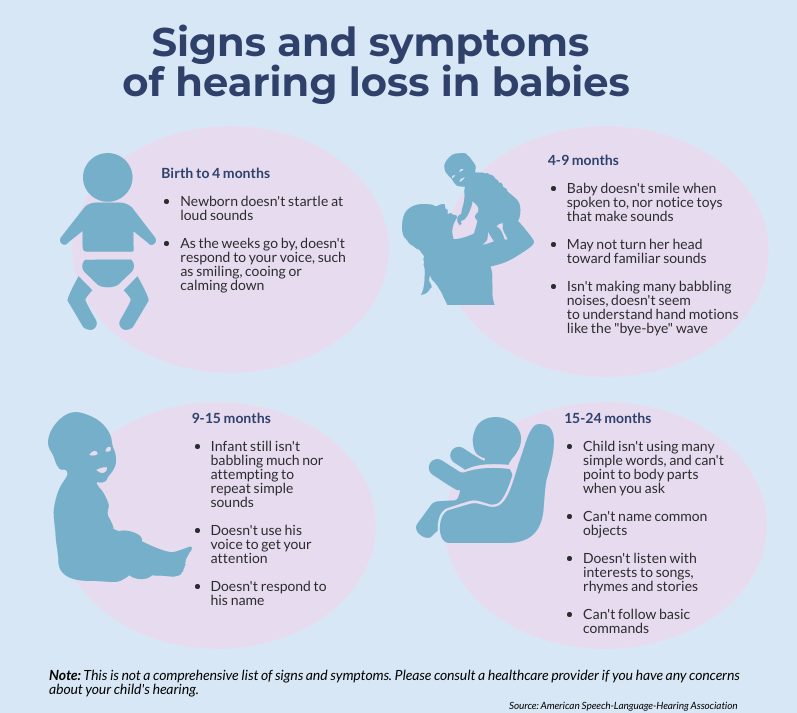
Evaluation Of Hearing Loss :
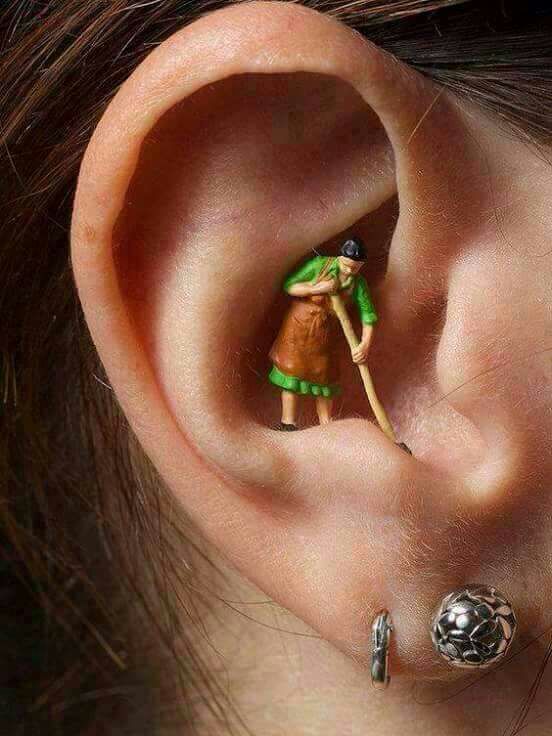
What is the right time to go in for hearing test?
Typically the first sign of hearing problem are often noticed by the family of the hearing impaired person. Usually the individual having reduced hearing will have:
1. Difficulty understanding speech in noisy situation
2. Difficulty understanding speech in group conversation
3. Having to turn up the volume
4. Difficulty when talking over the phone
How to Evaluate hearing loss?

Whom To Contact For Hearing Loss :
Who is a Hearing Health Consultant?
What is the role of an Audiologist?
All About Audiologist :
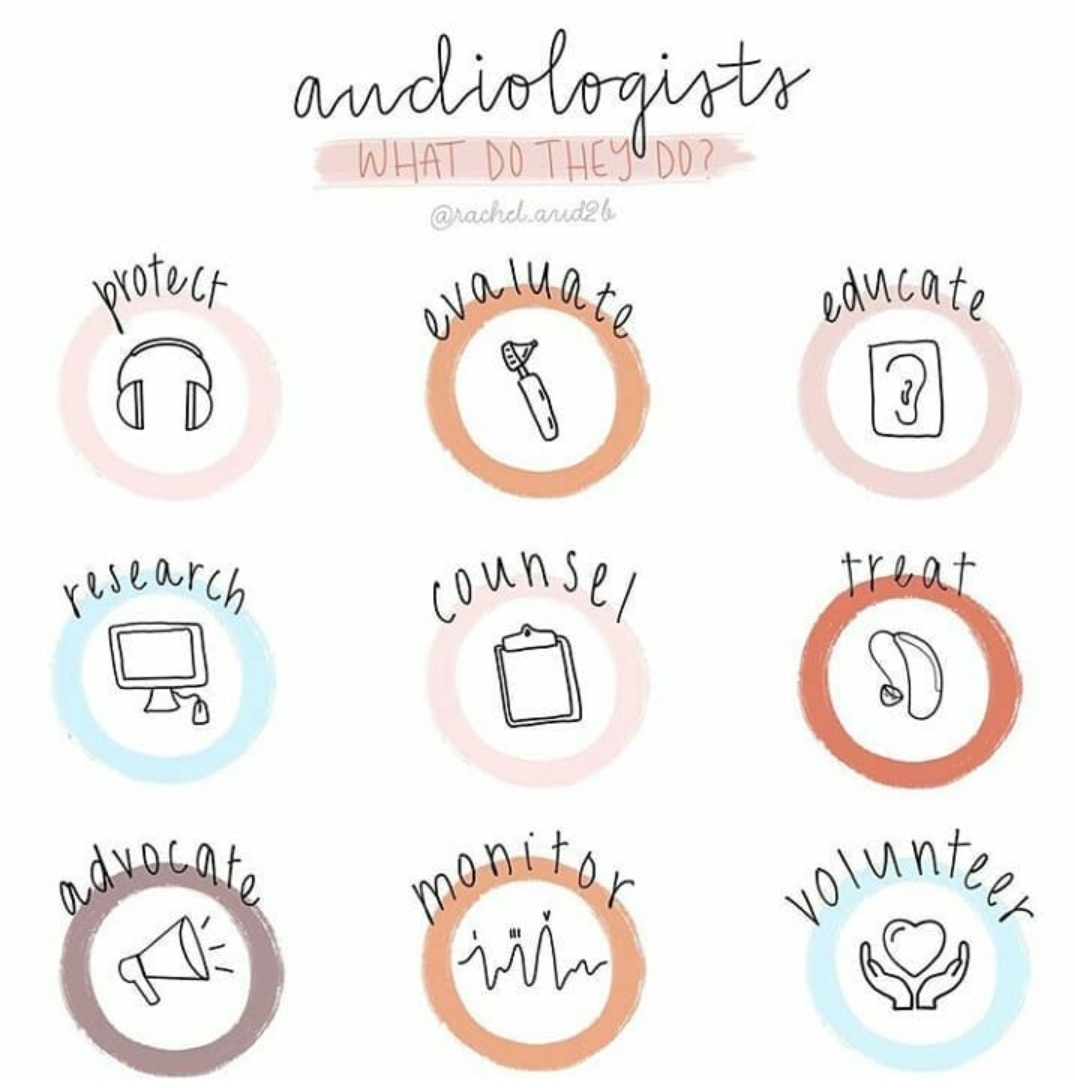
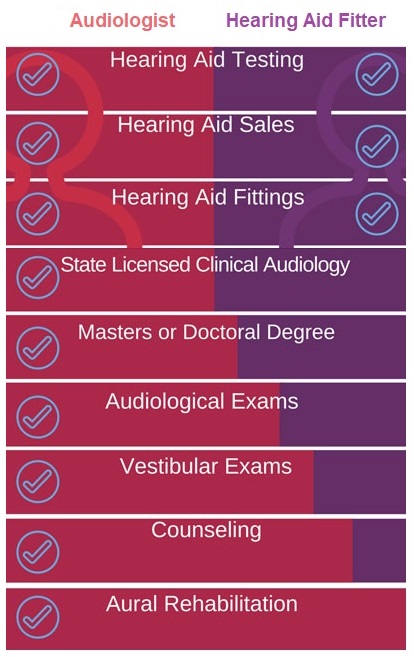
What Is The Difference Between An Audiologist And A Hearing Aid Fitter (HAF)?
There are a number of different hearing healthcare professionals available, but each has different education and training requirements. An audiologist is a legally recognised professional (by RCI – A government of India appointed statutory body) from whom the treatment for hearing loss is sought for.
Hearing Aid And Its Types :
7 most useful Features Of “Advanced Hearing Aids”
-
Natural Sound and Incredible Features – With its unique features, Advanced
hearing Aid makes it easier to experience a world of natural sound, no matter what the situation -
Not only is speech more intelligible but you can hear a wide range of sounds too.
-
Speech is much easier to hear as it moves otherwise inaudible sounds into lower
frequencies where you can better understand them. -
Hearing high frequency sounds such as birdsong or music can sometimes be a
challenge for those with a hearing loss, advanced hearing aid makes high frequency
sounds audible again. -
Annoying whistling or feedback is easily dealt with and eliminated in both ears.
-
A dedicated relaxation and tone program plays a range of random harmonic tones
that can help you relax. It can also help manage the effects of tinnitus. -
Hearing Aids are Designed for more comfort and clarity.

What are the different types of Hearing Aids?
Hearing Aids are mainly classified into 2 categories : 1) That sits BEHIND THE EAR 2) That can be inserted IN THE EAR CANAL.

1. Hearing Aids that sit Behind The Ear : These are of 3 types namely, BTE, RIC and RITE:

2. Hearing Aids that sit INSIDE THE EAR : These are of 4 types namely, ITE, ITC, CIC and IIC

Special Needs Hearing Aids:
CROS, BI-CROS, Hearing Aids in Stethoscope, BAHA, Bone Conduction Spectacle Hearing Aid, Cochlear Implant
What is the right time to go for hearing aid usage? When is the need for a hearing aid?
If you are having problems in your day-to-day communication or your work, you need a hearing aid. Many times, people themselves do not realize the need for an aid but their family members or co-workers find it very difficult to communicate with them.
Typically, the first sign of hearing problem is often noticed by the family of the hearing-impaired person. Hence, if either you or people close to you feel your hearing ability is diminished, you need to get your hearing checked. Usually, these difficulties are those if any the following questions are answered in a “yes”.
-
Do you not hear LOUD & CLEAR?
-
Do you keep T. V. Volume too high?
-
Do you find it difficult to converse on phone?
-
Do you have to ask the other person to repeat?
-
Do you “NO MORE” enjoy social gatherings & parties?
-
Do you have difficulty understanding speech in noisy situation?
-
Do you frequently ask others to speak more slowly?
Understanding & Accepting The Problem Of ‘Hearing Loss’ – Adopting the use of ‘Hearing Aids’
Observed During 43 Years of My Clinical Experience
Sooner the better
-
Do not delay the process of availing and adopting the use of hearing aids; by not adopting hearing aid in time leads to auditory cells of your brain become ‘DORMANT’ by ‘un-use’ /no-use.
-
The denial from the individual to accept the hearing loss leads to disuse of the function of the auditory brain cells whose sole work is to hear and understand the spoken language.
-
Later when the use of hearing aid starts these dormant auditory brain cells need to be revived by stimulating them with hearing and listening activities; resulting in time lapse before the individual would start understanding the spoken language.
Two Ears are better than one
-
Individuals having loos in both ears must go for hearing aids in both ears, for better ‘Speech understanding/ clarity’ with 3D effect of sound.
Selection of the instruments
-
Save yourself from getting dominated by lure of discounts, doctor Shopping and heresy by neighbours, friends and family.
Proper fitting of hearing aid
-
Its very important that one should be wise to make right choice of Clinic, check the experience and expertise of an Audiologist, a bond of trust between your Audiologist and youself, rapport with Audiologist, specific observations.
Educating the hearing aid users
-
One who chooses to go for usage of hearing aid supporting his/her sense of hearing, there is a very wide range of hearing aids available at Loud & Clear Hearing Aid Center cosmetic looks wise, technology wise and cost wise. We at loud & Clear Hearing Aid Centre counsel the user thoroughly regarding all three parameters their pros and cons; the user thus, learns to have realistic expectations from his hearing aids – depending on the technology chosen and range chosen cost-wise.
The way the specs are for your eyes, hearing aids are for ears.
Selection Of Hearing Aids :
How to select hearing aids?
Process of selecting a hearing aid from wide range of instruments from various companies, involves understanding the following steps :
1. Who needs hearing aids OR When does one need a hearing aid.
2. How do I go about doing hearing test OR who specialises in Hearing Aid fitting
3. What are the different types of hearing aids & its’ accessories; what is monetary range of HAs?
4. Which manufacturer’s/ companies’ HAs are available in India ?
5. How do I avoid fraudulent practice in buying a HA ?

What are the STEPS TO BETTER HEARING ?
-
Call 9967055010 to book an appointment with Audiologist at Loud & Clear Hearing Aid Center.
-
Tell your hearing loss story
-
Take a quick and painless hearing examination
-
Get Counselling on how to select a n appropriate hearing aid for you.
-
Choose your pair of hearing aids.
10 Very Useful Tips to Be Aware of While Selecting A Hearing Aid
-
Indian constitution’s RCI 1992 ACT states that in India only an Audiologist can dispense or sell a hearing aid.
-
Beware of fraudulent practice like hearing aid being sold on T.V, railway station, home Visits, pharmaceutical shops etc. Hearing Aid requires Fine Tuning, programming and calibration by an Audiologist, that is an ongoing process.
-
Choose an Audiologist’s Clinic that offers 2-3 Co.’s Instruments to select from. Completely avoid the ‘chalta purza’ who come home and do the hearing aid fitting. They are unqualified individuals who may talk very sweet and be humble human beings but has no medical qualification or enough technical knowledge to dispense hearing aids.
-
Audiologist must have sufficient time for counselling & answering all your questions on technology, care & maintenance of hearing aid.
-
An Audiologist should be able to give most comfortable fitting by fine tuning the hearing aid. One can have desired fitting in any company’s advance category hearing aids.
-
Minimum 3 sessions are required in the first 2 months for best tuning, especially in case of advanced category hearing aids as there is a lot of room technology wise, for fine tuning it to the user’s likings.
-
Advance hearing aid of all top 10 Co.’s are good but price varies. So compare Price Vs Technology.
-
Every Company has their domain expertise for e.g. fitting range, cosmetic looks, etc. One must think wisely and study what is best suited to their own audiogram (hearing test graph
-
Trying to hide hearing loss is like trying to hide your Age, other people will realize somethings amiss.
-
Hearing aid test should be conducted in sound treated room is a myth, because ultimately you will be using the hearing aid in your day to day activities in normal and open environments and therefore fine tuning and adjustments needs to be done in the same normal regular environment.
What Type Of Aid Should One Buy?
Depending on the type and degree of loss one has to decide the type of aid to buy. The most important factor to be considered prior to hearing aid purchase are the communication requirements of the User that fits his/her life style requirements, the number of listening environment that the user changes per day and finally the cosmetic look that they prefer.
What Style Of Hearing Aid Do I Need?
There are many types of hearing aids today and the style or device depends on your lifestyle, budget and hearing loss needs. There are in-the-ear styles as well as behind-the-ear styles. In addition to selecting the right style of device, it’s also important to consider what features would be most beneficial to you. From directional microphones to waterproof options, there are numerous varieties to meet everyone’s personal needs. Today’s hearing aids are even equipped with Bluetooth connectivity to work with wireless technology like a cell phone or television.
Hearing aids are available in many different sizes and styles, thanks to advancements in digital technology and miniaturization of the internal components. Many of today’s hearing aids are considered sleek, compact and innovative – offering solutions to a wide range of hearing aid users.
When selecting a style of hearing aid, the following should be considered:
• The type/degree of the hearing loss
• Power requirements
• Manual dexterity and visual abilities
• Budget
• Cosmetics and aesthetics
• Anatomical and medical considerations
• Lifestyle requirements
Will A Hearing Aid Restore Normal Hearing?
No, Hearing aids do not restore hearing sensitivity to normal hearing and may not be as effective in all listening situations such as listening to speech at a distance. It is an aid, a support for your ears like specs are for the eyes, a compensation not a cure. However an advanced technology hearing aids (labeled as Active on the Go in the illustration below) can compensate up to 90% in all listening situations, as shown in the illustration below. Higher the technology, better the comfort and clarity in listening situations. Basic technology fetches less comfort and clarity in any given listening demand. In more difficult listening situations, a FM system or a similar assistive listening device or a Bluetooth enabled accessory may be beneficial.
How Can You Be Sure Which Is The Right Hearing Aid For You?
If you’re interested in improving your hearing, you’ve probably heard a lot about Digital Hearing Instruments. How they amplify sounds more clearly and naturally than conventional hearing aids. Even that they can reduce the distraction of background noise.
Digital hearing technology can do amazing things with the sounds you hear. This technology closely matches the way you hear, as well as your individual listening requirements.
There can’t be better designed hearing aid than to copy the system that has worked well for thousands of years. Digital hearing aid closely imitates the function of your inner ear, offering a ‘win-win’ situation.
Chart For Selection of Hearing Aid Based on Lifestyle Requirement :
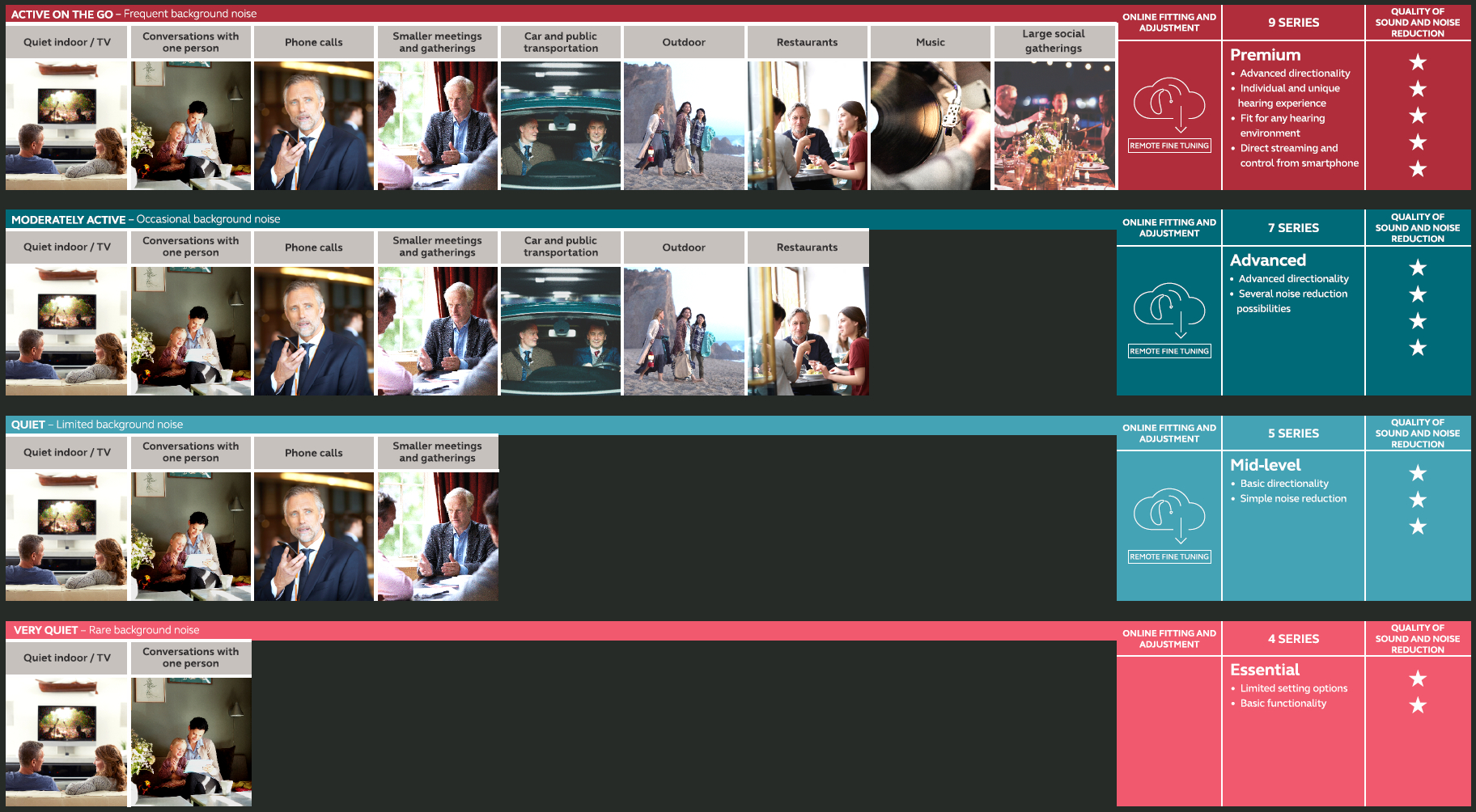
– Courtsey Resound India Pvt Ltd.
Consequences Of Delay And Disuse :
Should One Wear One Hearing Aid OR Two Aids? One On Each Ear?
“One is less than Half” – Contrary to what you may think, one ear working less effectively than the other can have a significant impact on your daily activities. Hearing with one ear is like trying to see with one eye – it’s possible, but not as effective.
“Nature Has A Way With Two” Like two legs, two wings, and two eyes nature has equipped the animal kingdom with a balanced pair of ears for reasons very important to their existence.
Anatomy of Binural Hearing
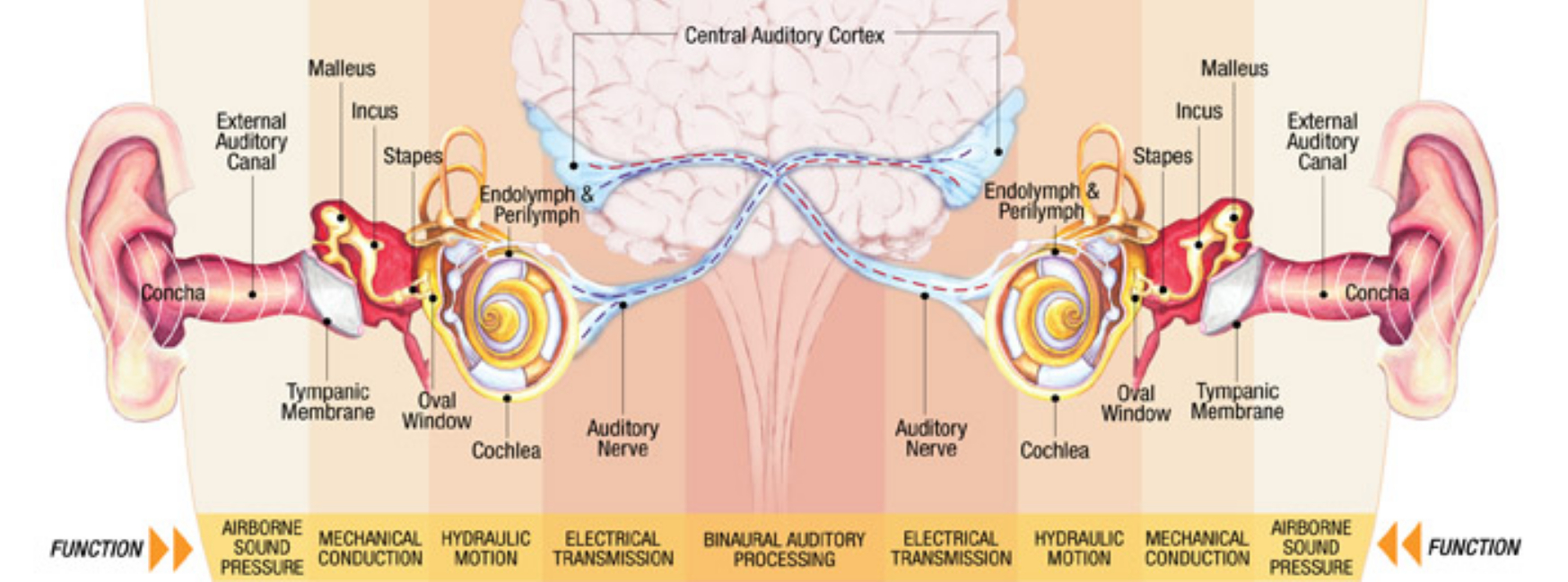
10 Reasons why you should wear 2 hearing instruments.
1. Better understanding in noisy places.
2. Binaural hearing allows you to better identify the direction of sound.
3. Binaural hearing creates better sound quality
4. Binaural hearing creates smoother tone quality.
5. Binaural hearing creates a wider hearing range.
6. Binaural hearing allows better sound identification.
7. Binaural hearing keeps both of your ears active.
8. Binaural hearing is less tiring and therefore makes listening a more pleasant experience.
9. Binaural hearing creates a feeling of balance
10. Binaural hearing instruments are more comfortable when loud noises occur
Psychological Consequences of Hearing Loss?
Hearing Aid Improves your Quality of life, Social Life-Relations, Reduces Miscommunications. Depending on the type and degree of loss one must decide the type of aid to buy. The most important factor to be considered prior to hearing aid purchase are the communication requirements of the User.
Some people can develop emotional or social difficulties due to their hearing loss. The inability to understand what is being said can lead to isolation, loneliness or depression. It can therefore mean a great deal if the people around them are supportive and encourage them to seek professional advice if necessary.
Some people with a hearing loss struggle with a feeling of embarrassment if they misunderstand what is being said or respond inappropriately. Your support and understanding in such cases can make a big difference.
People with hearing difficulties often spend a great deal of their energy just in concentrating on listening, which can lead to tiredness and stress. So it is important that others are equally understanding, for example colleagues and management at their workplace.
Tinniuts
What Is Tinnitus?
Tinnitus is a common disorder affecting over 50 million people in the United States. It is often referred to as “ringing in the ears,” although some people hear hissing, roaring, whistling, buzzing or clicking. Tinnitus is not actually a disease, but a symptom of another underlying condition of the ear, auditory nerve or other influencing factor. Tinnitus can be intermittent or constant, with single or multiple tones. The perceived volume can range from very soft to extremely loud and may be recurrent or constant.
What Causes Tinnitus?
The exact cause of tinnitus is not known in every case. However, there are several likely factors that may worsen tinnitus. These include:
• Noise-induced hearing loss
• Certain medications
• Ear or sinus infections
• Hearing loss acquired due to aging
• Ear diseases and disorders like Meniere’s disease.
• Jaw mal-alignment
• Cardiovascular disease
• Certain types of tumors
• Head and neck trauma
How Is Tinnitus Treated?
Depending on the severity and underlying condition causing the tinnitus, there are several treatments available to improve the perception of unwanted noise. The most common treatments for tinnitus include:
• Hearing aids with tinnitus-masking features
• Tinnitus retraining therapy
• Sound therapy
• Avoidance measures
• Avoidance of certain medications
• Behavioral therapy
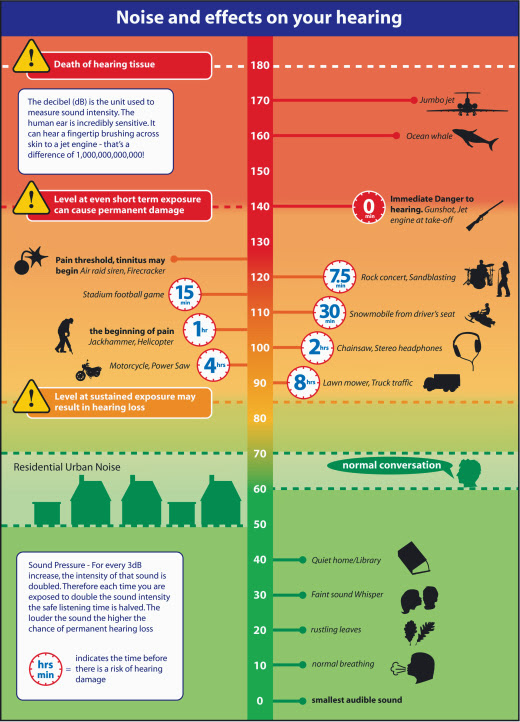
How to protect your hearing ?
1. Move away from the source of noise if you cannot eliminate the noise
2. Use ear plugs – Use earplugs at music festivals, concerts and discotheques,
where sound level is often very loud.
3. Wear hearing protections – wear hearing protection devices in
noisy environments, such as certain workplaces like factories, airports etc.
“There are differences in what is perceived as noise because some people are more sensitive to sound than others.”
The noise is too loud when:
-
You have to raise your voice to be understood by someone standing nearby.
-
The noise hurts your ears.
-
You develop a buzzing or ringing sound in your ears, even temporarily.
-
You don’t hear as well as you normally do until several hours after you get away from the noise.
When is noise harmful?
Your ears can be your warning system for potentially dangerous noises. some people are more sensitive to sound than others. You should always react if sounds feel uncomfortable or painful. Sounds that are louder than 85 dB can cause permanent hearing loss. The hearing system can be injured not only by a loud blast or explosion but also by prolonged exposure to high noise levels.
Loud & Clear Hearing Aid Centre
74, Chitrakoot, Altamount Rd,
Nr. Mukesh Ambani’s House,
Mumbai – 26. India
Email : shailavora@gmail.com

